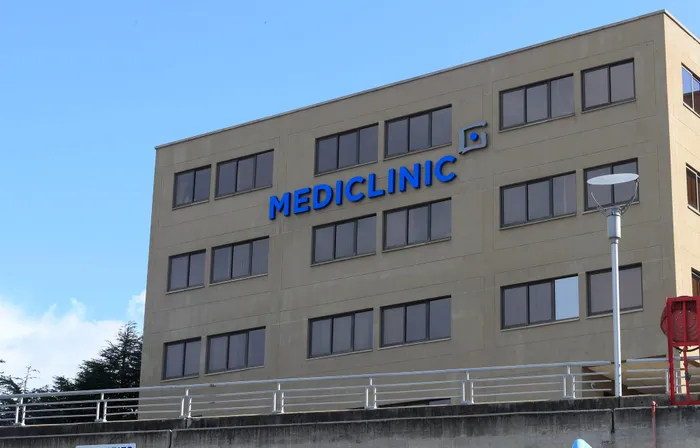Remgro is freezing hiring and offering early retirements at Mediclinic as it shifts towards AI to boost efficiency

Mediclinic’s share price rose 6.6 percent yesterday after it said it could realise R5.6 billion from the offer by Australian firm Ramsay Property Group to acquire Mediclinic’s 29.9 percent stake in the UK’s Spire Healthcare Group. Photo: Simphiwe Mbokazi African News Agency (ANA)
Image: Simphiwe Mbokazi/Independent Newspapers
REMGRO has reportedly introduced a hiring freeze and early retirement offers at Mediclinic as part of efforts to streamline operations and integrate AI to boost efficiency.
The decision was confirmed during Remgro’s 2025 Capital Markets Day, according to MyBroadband.
Mediclinic's Chief Operating Officer, Bertrand Levrat, explained that the measures aim to reduce administrative costs across the group.
Mediclinic stated that these cost-cutting measures are expected to result in savings of up to R2 billion by 2027. However, the company clarified that the hiring freeze will not affect frontline staff, including nurses and doctors.
“For SA-based corporate office personnel and shared services staff, we have offered an early retirement package. These will enable us to reduce the administrative costs of the group,” Levrat said.
According to Daily Maverick, the group stressed that no specific directive has been given for AI to replace full-time employees.
“This transformation includes the realignment of our corporate office structures, reinforcing our ability to support our facilities in providing exceptional care to our patients,” Levrat added.
“This evolution will strengthen our organisation and ensure we remain competitive, sustainable, and best positioned to meet the needs of our patients, clients, and stakeholders.”
Mediclinic is one of the country’s largest private hospital groups, employing more than 15,000 people across Southern Africa, with a significant proportion of employees based in South Africa.
The move could exacerbate the country’s high unemployment rate. According to the latest data from Statistics South Africa, the unemployment rate stood at 31.9% in the fourth quarter of 2024.
Young people are particularly affected, with those aged 15-24 facing the highest unemployment rate at 59.6%. The unemployment rate for those aged 25-34 is 39.4%, contributing to an overall youth unemployment rate of 45.5%.
Last month, Blade Nzimande, Minister of Science, Technology and Innovation, addressed both the opportunities and risks posed by AI, particularly in a country grappling with high unemployment.
The minister also called for deliberate policy interventions to ensure technology serves social justice, inclusivity, and equality.
"Major advances in science and technology have been transforming many aspects of the global economy and bringing with it huge disruptions in labour markets," Nzimande said.
Related Topics: